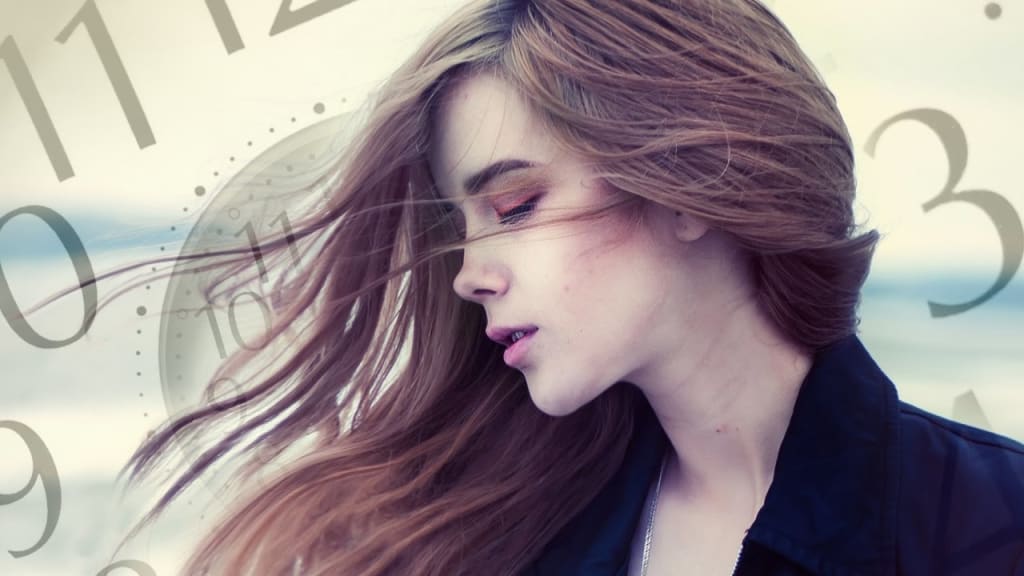10 Intriguing Theories Explaining Déjà Vu
Déjà vu is a rare occurrence, but we know when we experience it. We are convinced that we have lived the moment before. And often, it almost feels like we can predict what is going to happen next! But, that bizarre feeling goes away as quickly as it came, and we’re back to our normal reality. The actual cause of déjà vu has yet to be confirmed by science. However, dozens of theories have been proposed trying to explain this strange phenomenon. Here are 10 of the most fascinating and thought-provoking examples!

10 Intriguing Theories Explaining Déjà vu
Déjà vu is a rare occurrence, but we know when we experience it. We are convinced that we have lived the moment before. And often, it almost feels like we can predict what is going to happen next! But, that bizarre feeling goes away as quickly as it came, and we’re back to our normal reality. The actual cause of déjà vu has yet to be confirmed by science. However, dozens of theories have been proposed trying to explain this strange phenomenon. Here are 10 of the most fascinating and thought-provoking examples!
Number 1: Familiarity-Based Recognition When we recognize a stimulus in our environment, we are using our “recognition memory” which has two forms: familiarity and recollection. Recollection memory is when we recall seeing something which we have seen before. Familiarity-based recognition happens when we believe we are seeing something we recognize, but have no memory of it actually happening before. This could mean that déjà vu occurs when we have a faint memory of something that already happened, but the memory is not strong enough for us to recall where we remember it from.
Number 2: Senses and Memory Mix-Up This theory tries to explain déjà vu by linking it to our sensory perspectives. According to research, our memory is context dependent. This helps to explain déjà vu by showing how stimuli in the environment can easily provoke a memory. A certain sight or smell may trigger our subconscious mind to recall a time when we saw or heard the same thing.
Number 3: Dual Processing This is another theory that involves memory acting incorrectly or using higher processing. This theory suggests that when we perceive something, our brain is simultaneously trying to encode a new memory into our long-term memory. Thereby creating the illusion that we have experienced it before. This momentary timing error could be due to a tiny malfunction in the brain that is rather common to us all.
Number 4: Parallel Universe This theory claims that déjà vu can be explained by the feeling of having lived a moment before as a “crossover” with a parallel universe. Meaning, that whatever you’re doing while experiencing the déjà vu, a parallel version of you is doing it in a different universe simultaneously - creating an alignment between the two universes!
Number 5: The Hologram This theory is the idea that our memories are formed like three-dimensional images. Which means that they have a structured frame network to them. This suggests that the entire formation of a memory can be reconstructed by one element. Therefore, if one stimulus in our environment reminds us of a previous moment we have experienced, our brain makes a connection to the past event and produces a “hologram” of the memory to make it feel like we are reliving it.
Number 6: Precognitive Dreams This theory explains déjà vu by suggesting that the moment we have the experience of living something before, is when we have previously dreamed about the present happenings. For example, you may have a dream about riding your bike on a certain road, and then later you ride your bike on the same road as the one in your dream. You have a precognitive recollection of the road which allows you to recognize it. As dreaming is not a conscious process, this explains why we don’t consciously recognize the stimulus yet still feel that it is familiar – such as the road in this case.
Number 7: Amygdala The amygdala is a small section of our brain that is responsible for our fear response to things in our environment. The amygdala can be used to explain déjà vu - if we consider the moment as a temporary brain malfunction. If we are placed in a situation that is almost the same as a situation we have been in before but it is changed somehow, our amygdala can produce a panic response. It puts us in a temporary state of confusion, and this could be our experience of déjà vu.
Number 8: Divided Attention This theory suggests that déjà vu occurs due to a subliminal recognition of the object in our experience. This means that our subconscious mind recalls the stimulus, but our conscious mind does not. In which case, déjà vu could be the recognition of a message we have received subconsciously. Believers of this theory presume that subconscious messages can be communicated to us through sources such as the Internet, television, and social media.
Number 9: Reincarnation Reincarnation is based on having several lifetimes before we were born into this life, with no recollection of the previous ones. This theory explains the experience of déjà vu by referring to the moment as a signal from a previous life. There could be a trigger in the environment which allows the transition of consciousness to occur. Such as recognizing a certain stimulus from a previous existence and momentarily remembering a past life.
Number 10: A Glitch In Reality This theory describes déjà vu as a momentary breakdown in our reality and suggests that time doesn’t exist; it’s only a made-up convention to establish order and structure. What we believe to be the past, present, and future are actually all happening simultaneously. Therefore, when déjà vu occurs, we are simply slipping into a greater level of consciousness, where we are able to live more than one experience - at the same time. What do you think? Which of these theories sounds like the most possible explanation of déjà vu? Share your thoughts and comments below!






Comments
There are no comments for this story
Be the first to respond and start the conversation.